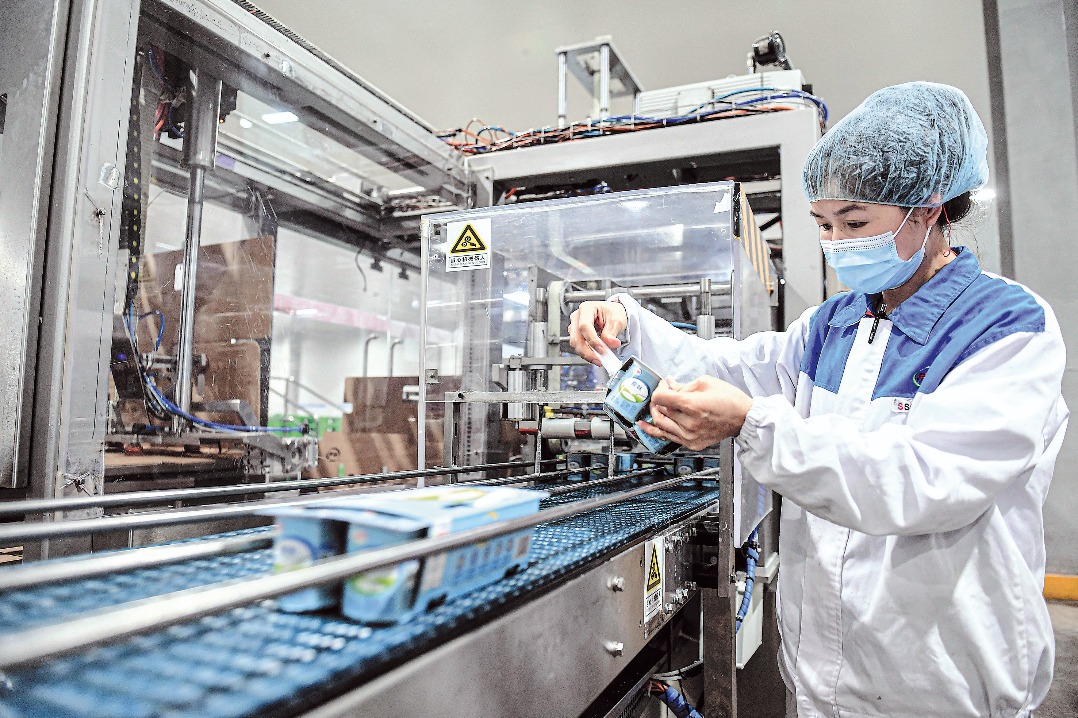SAS Institute Inc to look for new opportunities in China
Company plans to deploy additional resources and hire more local talent


SAS Institute Inc, the United States-based multinational developer of analytics and artificial intelligence software, plans to deploy additional resources and hire more local talent over the next three years as it aims to grow its market share in sectors such as life science and financial services in China, said its senior executives.
Many opportunities come from China's accelerating digital transformation, where the need for advanced data analytics and AI-powered solutions is growing rapidly across multiple sectors.
China's vast domestic market and ongoing efforts to upgrade its technological infrastructure create a dynamic environment for innovation, making it an ideal setting for SAS to deepen its presence and offer tailored solutions, especially in areas such as healthcare, life science, manufacturing powered by digital twins, banking and insurance, said John Carey, vice-president of global channels at SAS.
Digital twins are virtual models that replicate real-world objects or processes, enabling real-time monitoring and optimization, according to information released by Beijing-based Chinese Academy of Science and Technology for Development.
In manufacturing, a digital twin of a production line allows engineers to simulate and refine processes, identify bottlenecks and predict potential failures — ultimately improving productivity and efficiency.
Backed by a global workforce of more than 12,000 employees and engineers, SAS operates multiple offices, innovation hubs and technical centers in Chinese cities such as Beijing and Shanghai.
Jennifer Chase, SAS' executive vice-president and chief marketing officer, said that by leveraging its global expertise in data analytics, SAS aims to enhance decision-making and operational efficiency for local businesses, contributing to sustainable growth in China's healthcare, finance and other data-intensive industries.
China's heightened focus on developing the digital economy and expanding the use of rapidly evolving AI across sectors will accelerate industrial transformation and upgrading, while providing fresh momentum for the country's high-quality development, she noted.
Similar views were expressed by Wilson Ho, vice-president and managing director of SAS China. "In the global wave of digital transformation, China continues to demonstrate both a strong commitment to open collaboration and remarkable innovation leadership," he said.
"We are pleased to see that under the 'dual-circulation' development pattern, China is accelerating momentum in strategic industries such as life sciences through high-quality data infrastructure and the deep integration of AI and cloud technologies," said Ho.
The North Carolina-based SAS, which has been deeply engaged in the Chinese mainland market for 26 years, remains optimistic about its future prospects in the country and is committed to supporting local innovation.
As the global life sciences sector stands at the crossroads of AI-driven drug discovery, genomic big data and real-world evidence, Ho said that China's vast healthcare landscape, combined with its world-class digital infrastructure and rapidly maturing innovation ecosystem, is poised to deliver globally significant breakthroughs.
He said that SAS will intensify its focus on the life science industry, leveraging its core strengths in data modeling, AI-driven insights and compliance-oriented solutions to empower local partners in building a smart healthcare ecosystem in China over the next three years, accelerating progress in clinical decision-making, disease forecasting and public health management.
During its flagship conference, SAS Innovate 2025, which took place in Orlando, Florida, in early May, the group showcased solutions for risk and fraud, healthcare and life sciences, IoT and customer intelligence.
As China pushes forward with consumption upgrading and technological innovation, the country's demand for high-tech products and service solutions from multinational corporations is growing, said Ying Pinguang, dean of Shanghai University of International Business and Economics' School of Global Governance.
"This demand aims to strengthen industrial capabilities, promote smart development, and contribute to building a more sustainable and intelligent future together," said Ying.
Innovative technologies are essential for addressing these challenges, and digital tools such as AI, 5G and digital twins have proven to be the most effective enablers of future industrial and societal development in China, he added.
The added value of core industries in China's digital economy is expected to exceed 10 percent of GDP by the end of this year, as the country moves swiftly to advance its digital transformation, according to a 2025 action plan for building a digital China.
Released by the National Data Administration earlier this year, the plan highlights eight priority areas, including institutional innovation, AI Plus initiatives, infrastructure enhancement, the cultivation of data industry and the development of digital talent.
zhongnan@chinadaily.com.cn




































